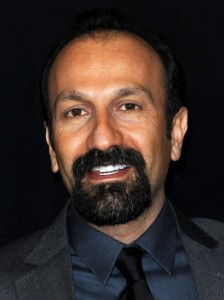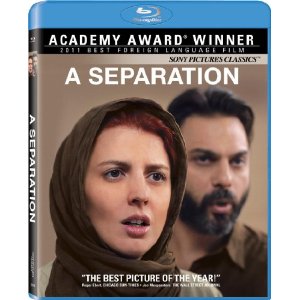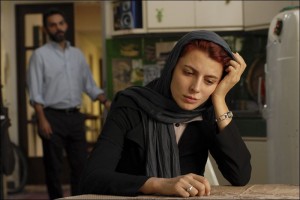 Iranian writer and director Asghar Farhadi is the director of A Separation, the 2012 Academy Award Winner for Best Foreign Language Film (Sony, Blu-ray
Iranian writer and director Asghar Farhadi is the director of A Separation, the 2012 Academy Award Winner for Best Foreign Language Film (Sony, Blu-ray $35.99, DVD $30.99, available on Aug. 14, 2012). A powerful drama set in contemporary Iran, A Separation tells of an Iranian middle-class husband and wife who separate from each other, prompting a series of complications and conflicts that arise when the husband hires a lower-class caretaker for his elderly father, who suffers from Alzheimer’s Disease.
Several day prior to the Academy Awards broadcast, Disc Dish spoke via telephone with Mr. Farhadi, who offered his views on his country’s cinema and politics, the ins and outs of making his film, and the subsequent reaction of the international community upon its release. Unfortunately, a technical glitch in our phone hook-up left us with an audio recording filled with a whole lot of feedback and sound drop-outs! Yikes!
So what you’re going to read here are highlights from our conversation with the Oscar-winning filmmaker—the bits that we could successfully transcribe! They primarily focus on Farhadi’s direction of his daughter Sarina Farhadi, who has a key supporting role in the film, and the filmmaker’s opinions of Hollywood’s leading films from 2011.
Disc Dish: Your daughter was outstanding in A Separation. What was it like to work with her?
Asghar Farhadi: It was very difficult and it was very comfortable. I had to get out of my role as father and be a director and she had to get out of her role as a daughter and become an actor.
DD: Roles aside, you I imagine you knew her and her abilities more than other performer you’ve worked with.
AF: I was familiar with her and her facial expressions, so I could predict how she would react in many situations.
DD: And how did she take direction?
AF: She would not do anything she didn’t agree with!! With other actesses, it was never the case that we would argue. If they didn’t accept what I said, they would still go ahead with it. With my daughter, she kept asking so many questions. After we finished the shooting, I would go home to answer her questions. Part of the success of the film comes from having to answer her questions and thinking more about certain scenes.
 DD: It’s like the strength of family, one of the film’s themes, was confirmed by you during its production.
DD: It’s like the strength of family, one of the film’s themes, was confirmed by you during its production.
AF: Yes, the idea of family is strong throughout. And the old man, the father, was also a part of my life. Even his name is the name of one of the people who are close to me.
DD: What were some of your favorite Hollywood films of 2011?
AF: I saw the film Drive and I enjoyed it because of the performances. Woody Allen’s Midnight in Paris was also a favorite because of the humor. But I don’t know if one would consider Drive and Midnight in Paris Hollywood films. Maybe Woody Allen would not like to hear that I called his film a Hollywood film.
DD: I spoke to Agnieskza Holland earlier and she was quite fond of The Tree of Life.
AF: Tree of Life is very different from many American films—it does not have the speed of American films. It does not go in a fast pace – it allows you to think. But it was still a film that felt long, even to me.
|
Buy or Rent A Separation
|
|||
|---|---|---|---|
DVD |
 DVD | Blu-ray DVD | Blu-ray |
 DVD | Blu-ray DVD | Blu-ray |
|

Leave a Reply